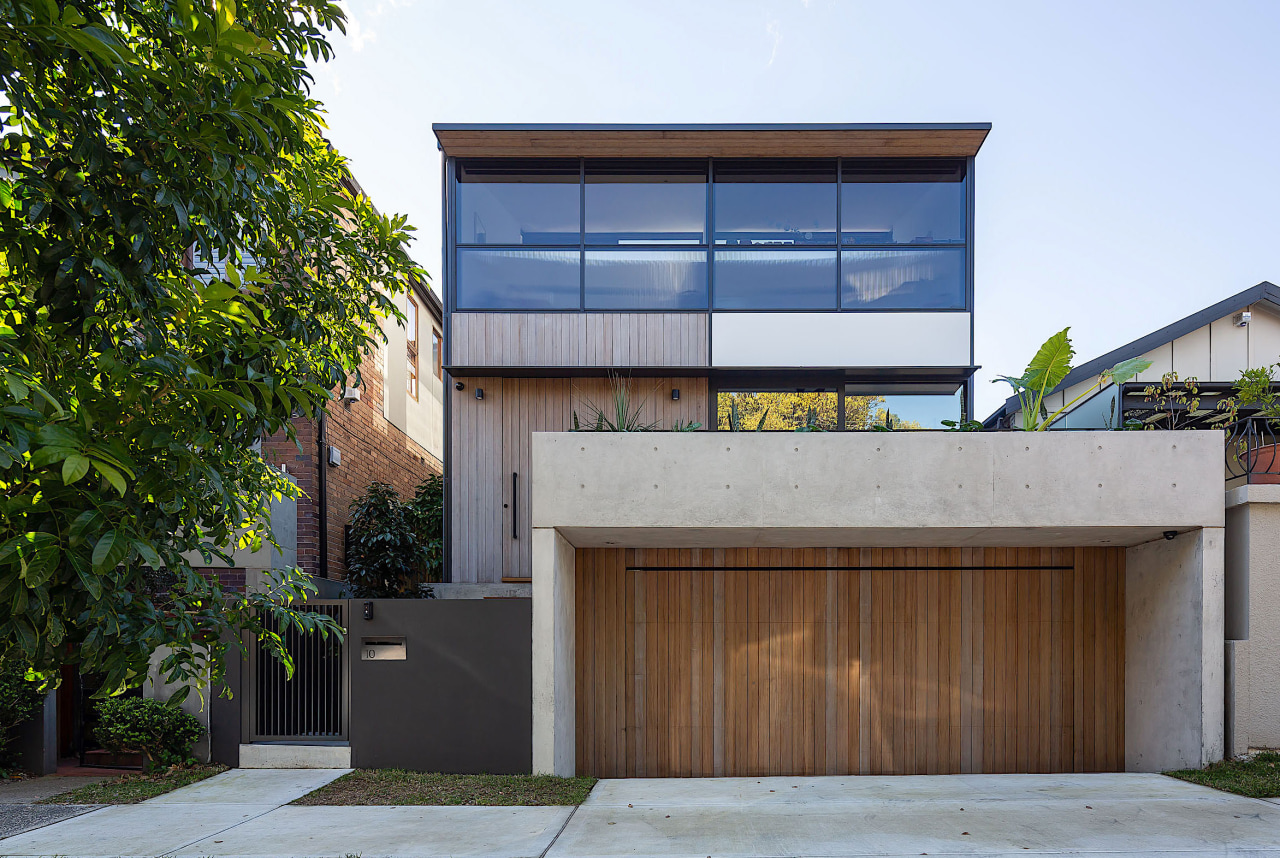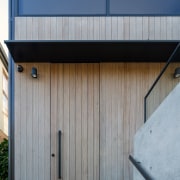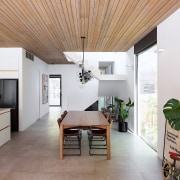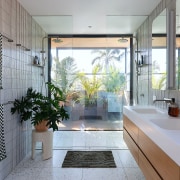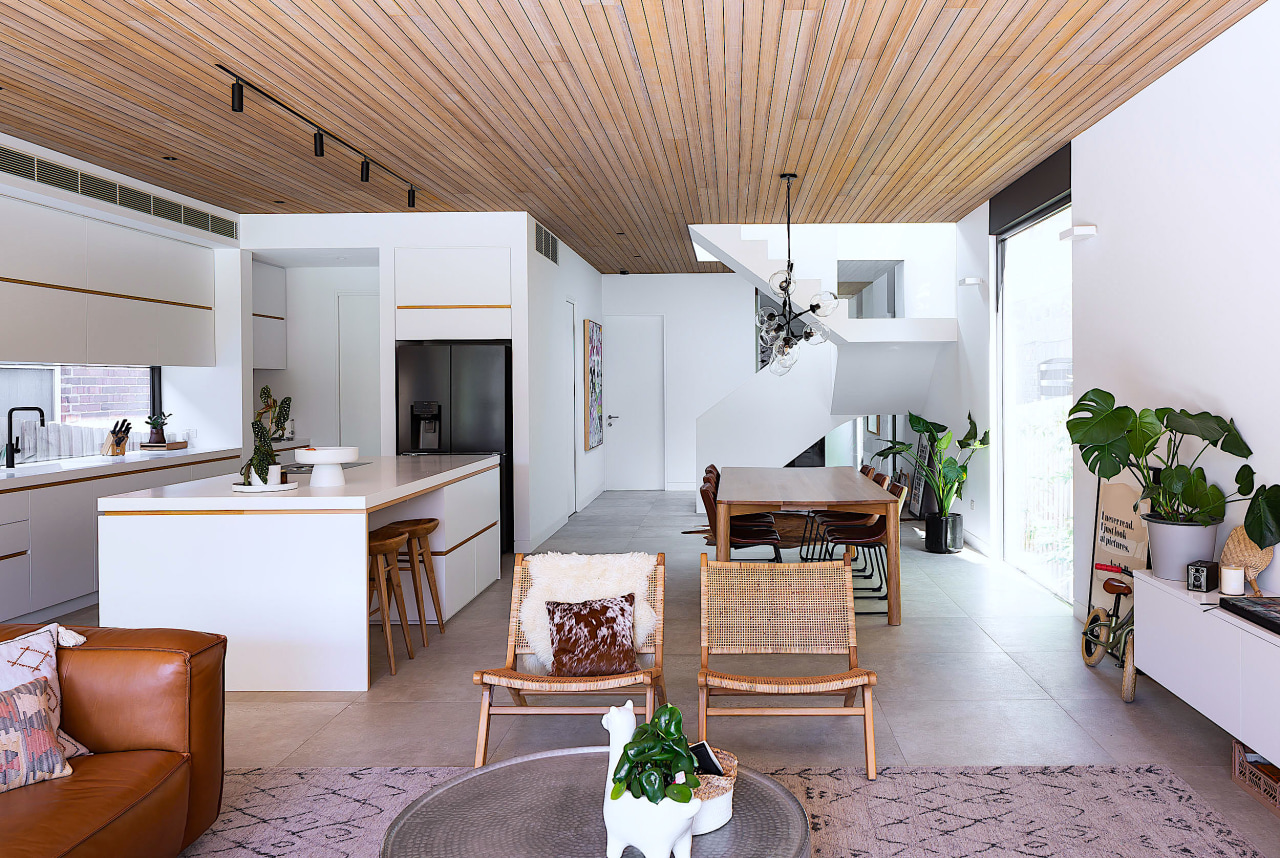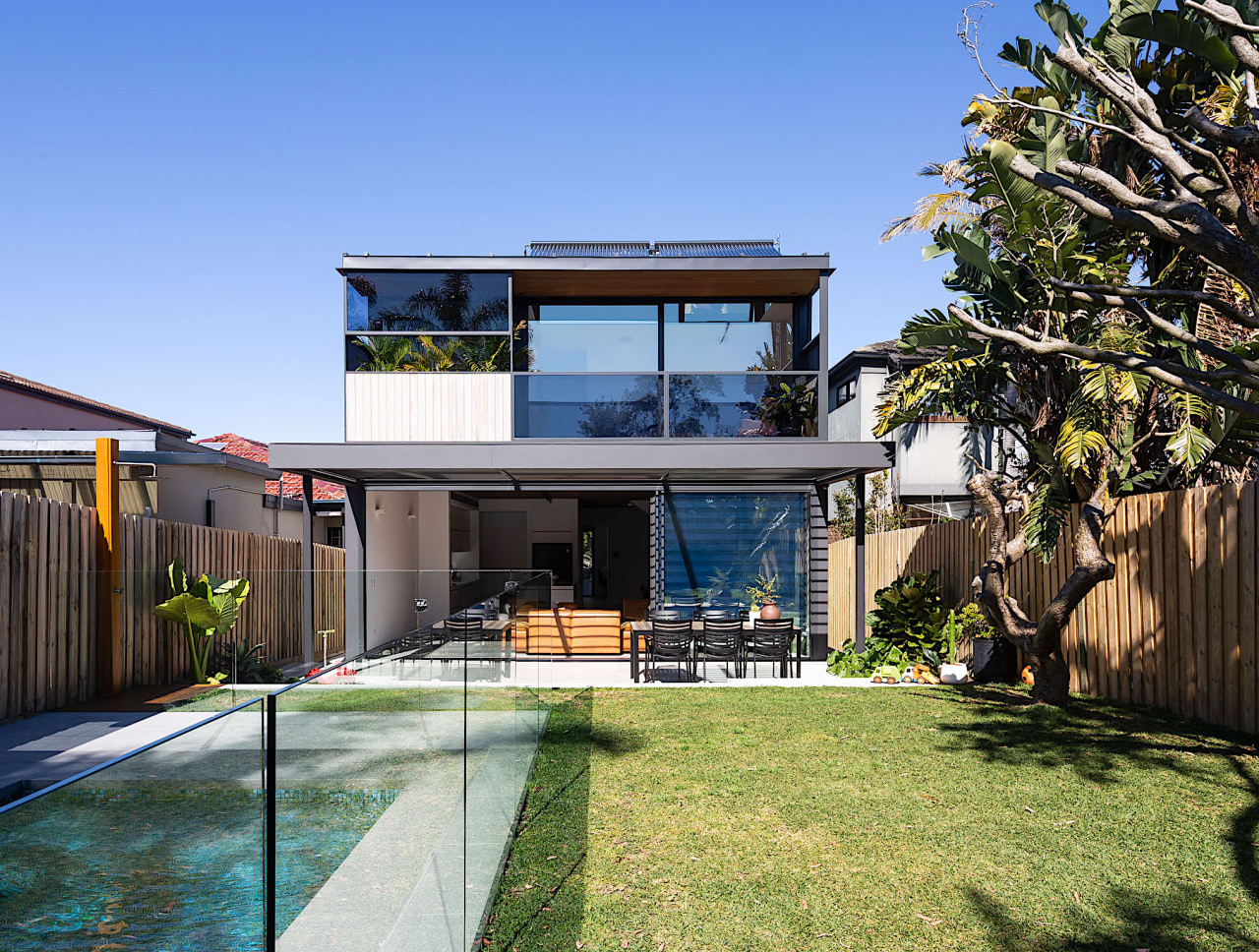Treading lightly
With sustainability at its core, this home produces more energy than it consumes and saves water and electricity – attracting a NatHERS 8.3 star rating
Designed by Nick Bell Architects
From the architects:
The brief
The aim of this project was to create a long-term family home that could evolve with the needs of the family over time and provide a warm and welcoming space for its users and guests.
Sustainability was one of the core principles of the brief, with the goal of designing a home that was cool in summer, warm in winter and cosy in between.
The design was also to establish an easy transition from inside to out to allow for a relaxed indoor-outdoor lifestyle.
Description
With sustainability at the core of the design, this family house produces more energy than it consumes and saves water and electricity – attracting a NatHERS 8.3 star rating.
Large sliding doors within the front and rear façade create a fluid relationship between indoor and outdoor areas and evoke a relaxed beach vibe commensurate with its surroundings in Bondi Beach.
Key elements such as the use of off form concrete, timber cladding and the sculptural stairs were carefully considered to uplift the overall design and create focus points as well as a warm palette within interiors and exteriors.
Sustainability plus
Sustainability featured in all decision making for the design of this home.
Here is how they are keeping their home cool in summer, warm in winter, while minimising emissions.
Aspect
- Living areas and main bedroom facing north – adjustable louvres over a north facing external living space provide shade for hotter months and allow the sun in during winter.
Building envelope
- Walls – highly insulated, over and above minimum requirements.
- Roof and ceilings – highly insulated, over and above minimum requirements.
- Thermal mass to store embodied energy, achieved by incorporating PCM (phase change material) within the external timber framed walls – double glazed high performance glass windows.
- Thermally broken aluminium windows frames.
- First floor roof form that provides through ventilation to bedrooms and double aspect natural lighting.
Energy
- Solar – 37 solar panels on the rooftop, achieving optimum solar gains.
- Stiebeleltron heat pump system + storage – supplying hot water, hydronic under floor heating in winter and pool heating.
- Apricus ETC-30T tube collectors improve energy efficiency.
- BYD 10.2kW DC Battery.
- Fronius WattPilot (solar) Electric Vehicle Charging.
- Energy efficient lighting and appliances
Space planning
- Thermal separation of basement from living areas.
- Minimised circulation space to reduce building footprint.
- Avoiding oversized rooms.
Water
- 4000L tank installed to maximise water savings.
- Rainwater tanks connected to flush toilets, washing machine, external taps and irrigation.
- Low water use tap and shower fittings.
Air
- Filtered ventilated air system used the same ducts as the air conditioner, ensuring fresh air intake and positively pressurising the home.
Credit list
Designed by: Nick Bell Architects
Story by: Trendsideas
Photography by: Simon Whitebread Photography
Home kitchen bathroom commercial design
